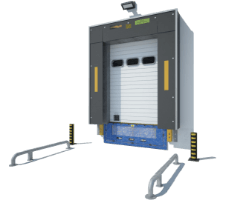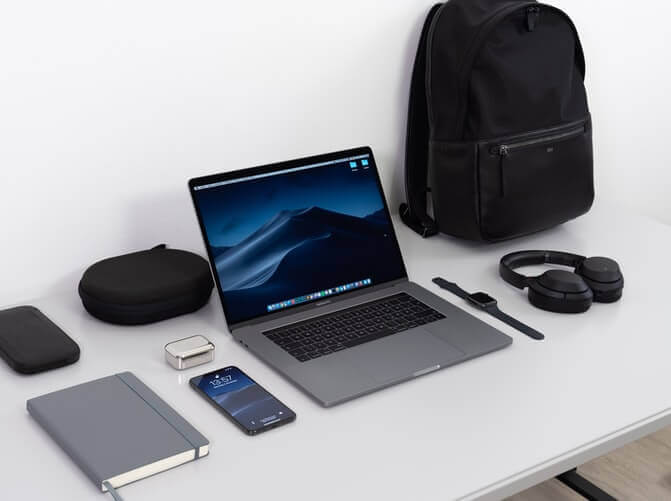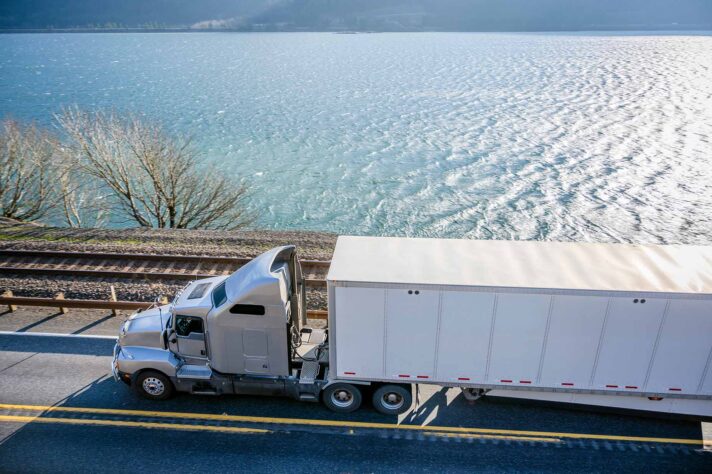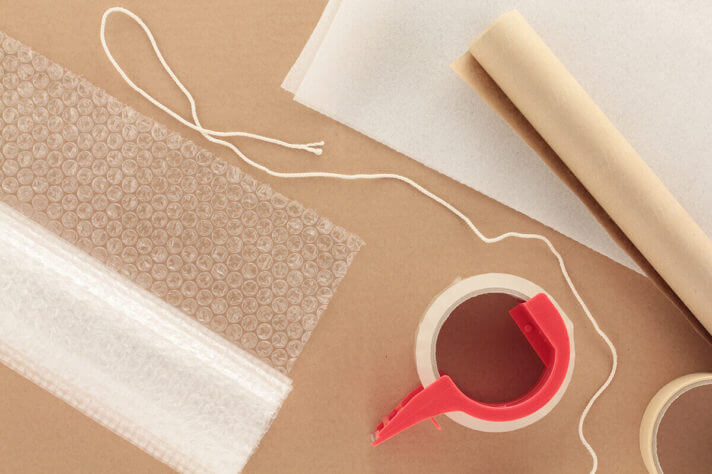Like many, you’re probably overwhelmed by the prospect of relocating into your first apartment. It’s a big change – one that comes with a lot of new responsibilities. To ease this process, we will show you everything you need to know about moving into an apartment for the first time. We’ll cover topics like finding an apartment, budgeting for rent, and preparing for move-in day, so you can be completely prepared when the big day comes.
With the help of our tips, your upcoming move will be nothing short of a success
Researching Will Help You Find the Home of Your Dreams
One of the most important – and most daunting – aspects of relocating to a new city is finding a new place to live. If you’re searching for a new apartment from scratch, it can be tough to know where to begin. Here are some of the best relocation tips on how to research apartments and find the perfect one for you:
Don't skip apartment tours
Skipping apartment tours is one of the biggest relocation mistakes you can make when choosing a new place to live. Unless an apartment complex has 3D tours available, it can be tough to gauge how big (or small) an apartment actually is from looking at photos. Even then, it’s not the same as being there and seeing everything for yourself.
If you’re considering an apartment, place visiting it on your to-do list. It’s the best way to get a feel for the size and layout of the space, as well as the amount of natural light. Otherwise, you might end up being unpleasantly surprised after you get a cross-country moving service and finally move in.
Research the neighborhood as well
Renting an apartment can be an exciting time. It’s a fresh start in a new place, and you get to choose your own adventure when it comes to picking out the perfect place to live. However, when you’re looking for a new place, it’s easy to get caught up in the excitement of finding an apartment that meets all your needs. Still, there’s one thing that’s often overlooked in the apartment-hunting process – the neighborhood.
Researching a neighborhood before moving is just as important as finding an apartment that meets your needs – if not more so. That’s because the neighborhood can have a major impact on your safety and quality of life.
Ensure all the necessary amenities are close by
When it’s time to move, safety should be your top priority – but convenience is always a bonus. Is the neighborhood close to public transportation? Are there stores and restaurants nearby? How easy is it to get around? Are there good schools in the area? Answering these questions will give you a better idea of whether or not a particular place is right for you.
First and foremost, you’ll want to make sure your new apartment is situated close to the things you need daily. This includes essentials like grocery stores, pharmacies, and laundromats. Remember – if you have to travel long distances just to get basic necessities, it’ll quickly become a hassle. Likewise, if your commute to work is going to be significantly longer than it was in your previous home, that’s something to take into consideration as well.
Still, before you even start your research, it’s important to sit down and think about what you need and want in an apartment. Make a list of must-haves, like the number of bedrooms and bathrooms, as well as amenities that would be nice to have, like in-unit laundry or a dishwasher. Having a clear idea of what you’re looking for will make your search go much more smoothly and make your relocation experience more enjoyable.
When Moving Into an Apartment, Have Your Budget All Figured Out
Once you have an idea of what kind of apartment you’re looking for, it’s time to start thinking about money. How much can you afford to spend on rent each month? Make sure to factor in other expenses like utilities and groceries when coming up with your budget. Don’t forget about one-time expenses you’ll have to pay, either, such as the cost of getting cross-country moving services, paying the deposit, or additional services such as packing service.
It’s also important to consider whether you’ll need roommates in order to make ends meet. It can be a good way to reduce relocation costs and save up extra money for other expenses, such as hiring good long-distance movers to help you move efficiently. If you don’t want to live on your own, note that there are many excellent roommate websites and apps (such as Roomi, for example) that can aid your search for the perfect roomie.
Read the Rental Agreement Before Signing It
Your rental agreement lays out your rights and responsibilities as a tenant, so it’s important to know what you agree to before signing it. For example, does your agreement stipulate how many people are allowed to live in the unit? Are pets allowed? What about guests? If you’re planning on having roommates or frequently hosting friends and family, make sure your agreement doesn’t have any restrictions that could cause problems down the road.
Another important thing to look for in your rental agreement is who is responsible for maintaining and repairing various aspects of the unit. In some cases, the landlord may be responsible for all repairs, while in others, tenants may be required to take care of certain things themselves. For example, if something goes wrong with the plumbing, who pays for the repairs? The last thing you want is to be stuck with a huge repair bill because you weren’t aware that you were supposed to be taking care of that particular problem.
Most rental agreements will also include paragraphs about rent increases. In some cases, landlords are allowed to raise rents with little or no notice. In others, they may be required to give tenants several months’ notice before increasing the rent. It’s important to know what your rights are so you can budget accordingly. No one wants to be blindsided by a big rent increase after already signing a lease!
Like with contracts from different cross-country moving companies, you must understand each letter in your lease
Prepare the Essentials for the First Few Days in a New Place
There are some things you’ll need to make sure you have on hand when you first arrive so that you can survive the first few days (and nights) in your new place. At the same time, keep in mind that this stuff needs to go with you, not the team from the cross-country moving company you hired.
Here’s a list of relocation essentials to help you get started.
- Food and water – if you can, try to have some non-perishable food items on hand so that you don’t have to go out shopping as soon as you arrive,
- Toiletries – your bathroom necessities will be much needed, so this stuff shouldn’t be transported by the cross-country moves,
- A comfortable place to sleep – whether it’s an air mattress or a futon, you’ll want to have somewhere comfortable to crash,
- A first-aid kit – hopefully, you won’t need it, but it’s always better to be safe than sorry. Make sure your kit includes Band-Aids, antibiotic ointment, pain relievers, and anything else you think you might need,
- Clean clothes – pack clothes for a few days so that you don’t have to worry about doing laundry right away,
- Chargers – chances are good that you’re going to want to use your phone and laptop a lot during those first few days as you try to get settled into your new place.
These essentials will also depend on your specific situation. If you plan to move with pets, for example, things like leashes and food and water bowls will be some of your relocation necessities.
Think about the stuff you can't live without even for a day - and make sure you pack them separately
Make an Apartment Shopping List
After the move to a new city, you’ll need the apartment to move in basics – furniture, appliances, linens, decorations, and more. Depending on the size of your apartment and your relocation budget, you may want to consider purchasing some or all of the following items:
- A bed and mattress,
- A couch and/or chairs,
- A coffee table,
- A TV stand,
- A television,
- A dining table and chairs,
- Dishware, glasses, and silverware,
- Pots and pans,
- Cooking utensils,
- Towels,
- Sheets and blankets,
- Pillows,
- Decorative items like pictures and plants.
Of course, this is just a basic list of things that every apartment needs. You may want to add other items depending on your specific situation. For example, if you have any pets, you’ll need to make sure that you have enough supplies for them as well.
Of course, remember that not all of these items should be on your new apartment shopping list. Some of them you already own, and they will be transported by a long-distance moving company. Others may be furnishings that come into an apartment. Therefore, cross the items you’ll already have off the list – and purchase what you don’t.
Bring Tools With You
A hammer and nails are two of the most basic tools you’ll need for hanging pictures, setting up shelves, and mounting towel racks – if your lease allows it. You’ll also need a screwdriver (or two) for tasks like assembling furniture, attaching door knobs, and tightening cabinet hinges. A good tip is to get a screwdriver set that includes multiple sizes and head types, so you’re prepared for anything.
Pliers come in handy for all sorts of things, from gripping screws that are too tight to turn by hand to snipping through stubborn zip ties. When organizing a move, keep a pair in your toolbox, and you’ll be glad you did when you need them. In the end, don’t forget about the flashlight. There’s bound to be some exploring (and maybe even some light bulb changing) involved as you settle into your new home, so make sure you have a flashlight within easy reach.
Decorate and Make the Space Yours
Once the initial euphoria after relocating to a new state wears off, it’s normal to start feeling a little lost in your new surroundings. After all, home is more than just a roof over your head – it’s a place where you feel safe, comfortable, and free to be yourself. It can take some time to adjust to a new living situation, but there are a few things you can do to ease the transition and make your new apartment feel like home in no time.
First of all, make sure to personalize the space with your own belongings. Don’t be afraid to put up some photos, hang some art on the walls, make the place feel alive with a couple of plants, or display any other mementos that are important to you. Simultaneously, take some time to adjust your furniture so that it’s arranged in a way that makes sense for you and your needs.
And don’t forget about those little details that can make all the difference – like adding some cozy throws and pillows or hanging curtains that block out unwanted light and noise. By making small changes like these, you’ll be surprised at how much more at home you’ll start to feel in no time.
If you need more ideas on how to make your apartment more comfortable and inviting after getting long-distance moving services and relocating, make sure you check the video below:
Embrace the Change, and You Won’t Get Stressed During the Move
If you take the time to plan your move ahead and embrace the change, moving into a new apartment can be an exciting adventure. Following our simple tips will allow you to minimize relocation stress and make the transition smoother – even if you’re moving cross-country for the first time. In the end, instead of focusing on all the changes that need to be made, take it one step at a time and focus on the relocation benefits you’ll gain. And when you’re feeling overwhelmed, just relax and take a deep breath – you got this!










